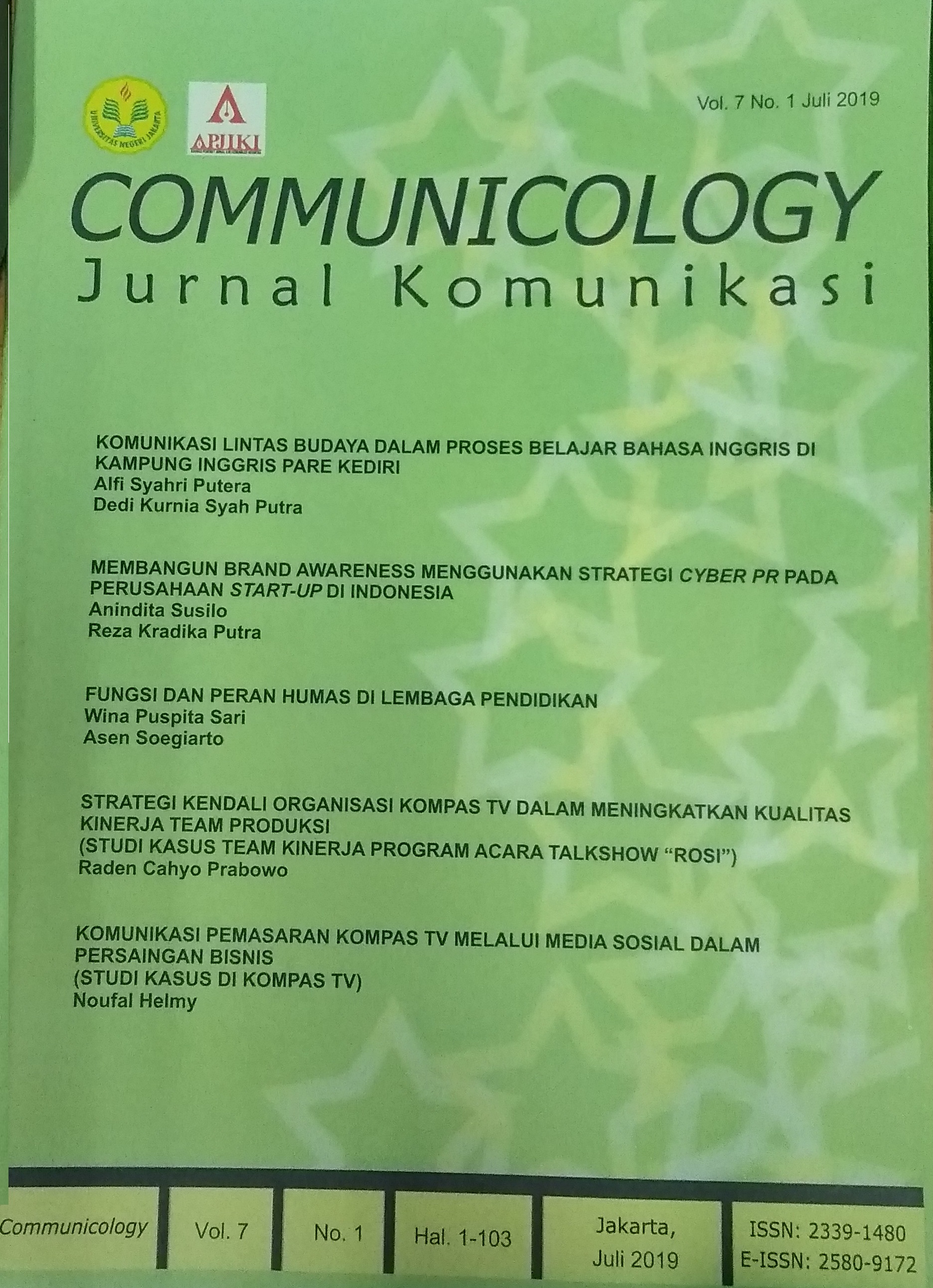STRATEGI KENDALI ORGANISASI KOMPAS TV DALAM MENINGKATKAN KUALITAS KINERJA TEAM PRODUKSI
(Studi Kasus Team Kinerja Program Acara Talkshow “Rosi”)
DOI:
https://doi.org/10.21009/COMMUNICOLOGY.14.04Keywords:
Strategy, Organizational Control, TV Compass, Quality, performance, case studyAbstract
Abstract
Research on Kompas TV's Organizational Control Strategy in Improving Production Team Performance (Case Study Team of the "ROSI" Talkshow Event Program) at Kompas TV in improving the performance of the production team has a purpose to find out how the Kompas TV Organization Control Strategy Improves Production Team Performance (Case Study "ROSI" Talk Show Program Performance Team) at Kompas TV. The theories used in this study include Philip Tompkins's Organizational Control Theory and colleagues. The research paradigm used is Post-positivism. The research approach is qualitative using the Case Study research method. The results of this study are the Compass TV Organizational Control Strategy in Improving Production Team Performance (Case Study Team for a good and quality "ROSI" Talkshow Program) by means of two-way communication between Ms. Rosi Silalahi and the Kompas TV performance team and joint dialogue so that shows talkshow Rosi Kompas TV Becomes quality. In the Rosi Kompas TV talkshow program, the production performance team conducted a dialogue with Rosi on what themes or issues to be raised during the Rosi talk show on the D-Day or Thursday.
Keywords: Strategy, Organizational Control, TV Compass, Quality, Performance, Case Study
Downloads
Published
How to Cite
Issue
Section
License
Authors who publish with this Journal agree to the following terms:
- Author retain copyright and grant the journal right of first publication with the work simultaneously licensed under a creative commons attribution licensethat allow others to share the work within an acknowledgement of the work’s authorship and initial publication of this journal.
- Authors are able to enter into separate, additional contractual arrangementfor the non-exclusive distribution of the journal’s published version of the work (e.g. acknowledgement of its initial publication in this journal).
- Authors are permitted and encouraged to post their work online(e.g. in institutional repositories or on their websites) prior to and during the submission process, as it can lead to productive exchanges, as well as earlier and greater citation of published works.
Users/public use of this website will be licensed to CC BY





